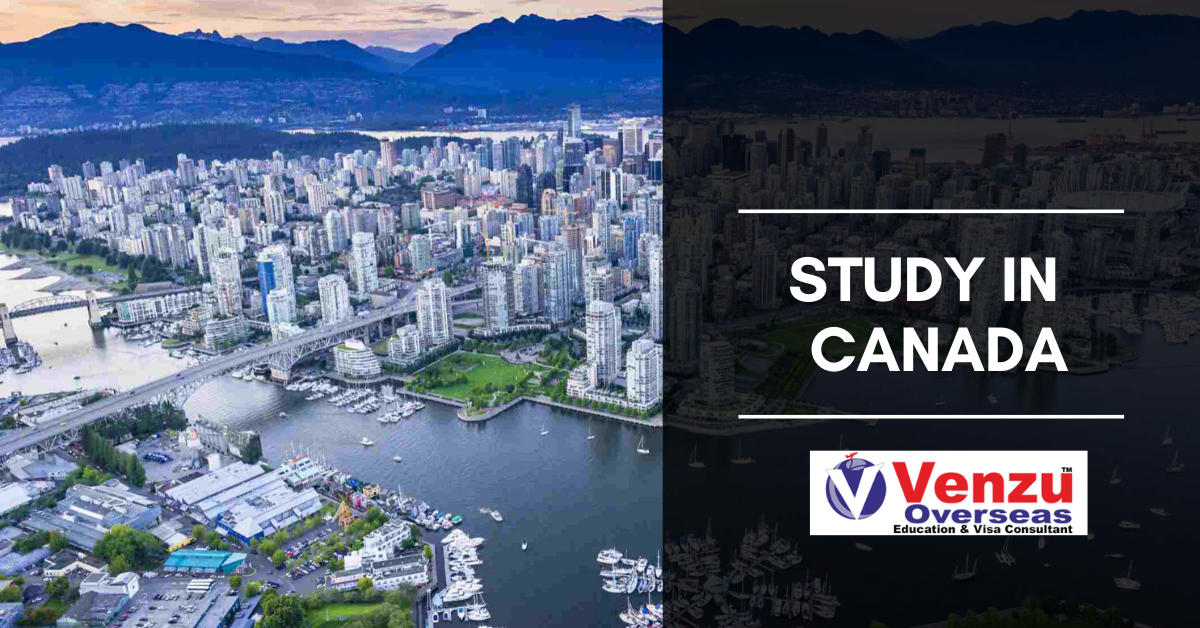Verb Patterns -verb + -ing, verb + to infinitive, verb + object + to infinitive
Grammar for IELTS
verb + -ing
The “-ing” form of a verb is called the present participle. It is formed by adding “-ing” to the base form of the verb. The present participle can be used in several ways in English:
-
- Continuous verb tenses: The present participle is used to form continuous verb tenses, such as present continuous (e.g. “I am eating”) and past continuous (e.g. “She was studying”).
- Gerunds: The present participle can be used as a noun in a sentence, known as a gerund. For example, “Swimming is good exercise.”
- Adjectives: The present participle can be used as an adjective to describe a noun. For example, “The running water is refreshing.”
- Participial phrases: The present participle can be used in a participial phrase to describe a noun or pronoun. For example, “The man, carrying a heavy bag, walked slowly.”
It’s important to note that sometimes the present participle can be used as a part of a verb phrase, but not as a continuous verb tense. For example, “I like swimming” is not in the present continuous tense, but rather using “swimming” as a gerund.
Here are some examples of “verb + -ing” structures in IELTS-level sentences:
- Smoking is harmful to your health.
- Learning a foreign language is important for career advancement.
- Jogging is a great way to stay fit and healthy.
- Studying regularly is essential for academic success.
- Practicing meditation can help to reduce stress and anxiety.
In each of these sentences, the verb is followed by the “-ing” form of a verb, which is also known as a gerund. These structures are commonly used in English to express actions or activities that are ongoing or habitual. In the context of the IELTS exam, it is important to be able to use a variety of sentence structures, including this one, to demonstrate your language proficiency. It is also important to be able to use gerunds correctly in a variety of contexts, as they can be used as subjects, objects, and complements in a sentence.
Here are some examples of sentences that use gerunds as subjects, objects, and complements:
- Running is a great way to stay in shape. (Subject)
- She enjoys cooking for her family and friends. (Object)
- The most challenging part of studying abroad is adjusting to a new culture. (Complement)
- Dancing is his passion. (Subject)
- I love playing the guitar in my free time. (Object)
- Her favourite hobby is hiking in the mountains. (Complement)
- Swimming in the ocean is a lot of fun. (Subject)
- He hates doing the dishes after dinner. (Object)
- Running is my favorite form of exercise. (Subject)
- Singing in the shower is a common pastime for many people. (Subject)
- Learning English is important for career advancement. (Subject)
- She enjoys listening to music while she studies. (Object)
- The most difficult part of writing an essay is organizing your ideas. (Complement)
- Helping others is a rewarding experience. (Subject)
- I’m looking forward to traveling to new places in the future. (Object)
- Her biggest accomplishment was finishing the marathon. (Complement)
- Studying hard is key to getting good grades. (Subject)
- He regrets not spending more time with his family when he was younger. (Object)
- His dream is to become a famous artist one day. (Complement)
- Dancing is a fun way to stay active and healthy. (Subject)
In each of these sentences, the gerund (the -ing form of a verb) is used as a subject, object, or complement in the sentence. It’s important to note that gerunds can be used in a variety of ways, and they often function like nouns in a sentence.
verb + to infinitive
When a verb is followed by “to” and the base form of the verb, it forms what is called a “to infinitive”. Here are some examples:
- “I want to go to the beach.” (The verb “want” is followed by the to-infinitive “go.”)
- “She needs to finish her homework before dinner.” (The verb “needs” is followed by the to-infinitive “finish.”)
- “He decided to quit his job and travel the world.” (The verb “decided” is followed by the to-infinitive “quit.”)
- “They like to watch movies on Friday nights.” (The verb “like” is followed by the to-infinitive “watch.”)
The to-infinitive is often used after certain verbs like “want”, “need”, “decide”, “like”, “plan”, and “hope”. It is also used after adjectives like “easy”, “difficult”, “happy”, and “excited”, to describe what someone wants or intends to do.
In addition, the to-infinitive is also used after certain nouns and phrases, like “the chance to”, “the time to”, and “the opportunity to”, to express what someone wants to do or would like to have the chance to do.
verb + object + to infinitive
When a verb is followed by an object and then the “to” infinitive, it forms a verb pattern known as a “verb + object + to-infinitive” structure. Here are some examples:
- “She wants me to finish my work.” (The verb “wants” is followed by the object “me” and then the to-infinitive “to finish”.)
- “He advised his friend to study for the test.” (The verb “advised” is followed by the object “his friend” and then the to-infinitive “to study”.)
- “I reminded him to buy some milk.” (The verb “reminded” is followed by the object “him” and then the to-infinitive “to buy”.)
- “They encouraged their children to pursue their dreams.” (The verb “encouraged” is followed by the object “their children” and then the to-infinitive “to pursue”.)
The “verb + object + to-infinitive” structure is commonly used to express the idea of urging or persuading someone to do something. Other verbs that can be used in this structure include “persuade”, “convince”, “order”, “command”, “allow”, and “forbid”.
It’s important to remember that not all verbs can be used in this structure, and some verbs may take different structures depending on the context.
here are some examples of “verb + object + to-infinitive” structures in IELTS-level sentences:
- The teacher encouraged her students to ask questions during class.
- The company manager ordered his staff to finish the project by the end of the week.
- The doctor advised his patient to exercise regularly and eat a balanced diet.
- The government urged the public to reduce their carbon footprint and conserve energy.
- The parents persuaded their son to pursue a degree in engineering instead of business.
In each of these sentences, the verb is followed by an object and then the to-infinitive form of a verb. These structures are commonly used in English to express the idea of urging or persuading someone to do something or to give advice or instructions. In the context of the IELTS exam, it is important to be able to use a variety of sentence structures, including this one, to demonstrate your language proficiency.
Here are some IELTS Speaking questions and answers that incorporate verb patterns – verb + -ing, verb + to infinitive, and verb + object + to infinitive:
Q: Do you enjoy cooking?
A: Yes, I love cooking. It’s really relaxing for me to spend time in the kitchen, chopping vegetables and preparing meals. I especially enjoy experimenting with different recipes and trying new things.
Q: What’s your favorite way to exercise?
A: I like to go running in the morning. It’s a great way to get my blood pumping and start my day off on the right foot. I also enjoy doing yoga, which is more meditative and helps me to stretch and relax my muscles.
Q: How do you plan to improve your English skills?
A: I’m planning to take an English course next semester at my university. I also want to start watching more English-language movies and TV shows, and reading more books in English. I think it’s important to immerse myself in the language as much as possible to really improve my skills.
Q: Have you ever tried learning a musical instrument?
A: Yes, I’ve tried to learn the guitar a few times in the past. It’s always been a bit challenging for me, but I find it really rewarding when I’m able to play a song all the way through. I think it’s important to practice regularly and to have a good teacher who can help guide you through the learning process.
Q: What do you think are the benefits of learning a second language?
A: I think there are many benefits to learning a second language. For one thing, it can help you to communicate with people from different parts of the world and to understand different cultures. It can also be a great way to challenge your brain and improve your cognitive skills. Finally, learning a second language can be a lot of fun and can open up new opportunities for travel and exploration.
IELTS Speaking Part 2 Cue Card Question:
Describe a hobby or activity that you enjoy doing. Please say:
- What the hobby or activity is
- Why you enjoy it
- How often you do it
Answer:
One of my favorite hobbies is hiking in the mountains. I really enjoy getting out into nature and exploring new trails and vistas. When I’m hiking, I feel like I’m really able to disconnect from the stresses of daily life and connect with the natural world around me.
There are a few reasons why I love hiking so much. For one thing, it’s great exercise – I get to challenge myself physically and push myself to climb steep hills and navigate rocky terrain. But beyond that, I also really appreciate the sense of peace and solitude that comes with being out in the wilderness. When I’m hiking, I feel like I’m able to slow down and appreciate the beauty of the world around me in a way that’s not always possible in our fast-paced modern society.
I try to go hiking as often as possible, especially on the weekends when I have more free time. Luckily, there are plenty of great hiking trails within driving distance of where I live, so I’m able to get out and explore different parts of the region pretty regularly. I also enjoy hiking with friends, as it’s a great way to bond and share a sense of adventure and accomplishment. Overall, I think hiking is an incredibly rewarding hobby that allows me to stay fit, de-stress, and connect with the natural world around me.
Here are some exercises to practice the different verb patterns:
- Complete the following sentences using the correct verb pattern:
a) She enjoys _____________ (read) books in her free time.
b) They plan ______________ (travel) to Spain next summer.
c) He promised _______________ (return) the money by Friday.
d) We suggested _______________ (go) to the beach this weekend.
e) She kept _______________ (talk) until I had to interrupt her.
f) I’m trying _______________ (study) harder for my exams this year.
g) They encouraged their children _______________ (learn) a second language.
h) We watched the children _______________ (play) in the park.
- Rewrite the following sentences using the verb pattern specified:
a) She decided to start a new hobby. (verb + to infinitive)
b) They are considering buying a new car. (verb + -ing)
c) He forgot to lock the door when he left. (verb + object + to infinitive)
d) He forgot to buy milk. (verb + object + to infinitive)
e) I enjoy playing tennis. (verb + -ing)
f) She wants to visit Paris next summer. (verb + to infinitive)
- Choose the correct verb pattern to complete the following sentences:
a) I regret _______________ (tell) him the truth.
b) They avoid _______________ (eat) fast food.
c) She can’t help _______________ (feel) nervous before exams.
d) He likes _______________ (listen) to music while he works.
e) He suggested _______________ (go) to the new Italian restaurant for dinner.
f) They can’t afford _______________ (buy) a new car at the moment.
g) She regrets _______________ (not study) harder for her exams.
h) We’re considering _______________ (move) to a bigger house next year.
Check Your Answers After Doing Test
Answers
-
a) reading, b) to travel, c) to return, d) going e) talking, f) to study, g) to learn, h) playing
-
a) She decided to start a new hobby. -> She decided she wanted to start a new hobby. b) They are considering buying a new car. -> They are considering the possibility of buying a new car. c) He forgot to lock the door when he left. -> He forgot that he had to lock the door when he left. d) He forgot that he had to buy milk. e) I enjoy playing tennis. f) She wants to go to Paris next summer.
-
a) telling, b) eating, c) feeling, d) listening e) going, f) to buy, g) not studying, h) moving.
Study Abroad







Grammar for IELTS: Articles: “A,” “an,” and “the”
Articles: "A," "an," and "the" are articles in English grammar. "A" and "an" are indefinite articles used to refer to a non-specific noun or thing. "A" is used before a word that starts with a consonant sound, and "an" is used before a word that starts with a...

Grammar for IELTS: Relative, Restrictive, and Non-restrictive Clauses
Relative, Restrictive, and Non-restrictive Clauses A relative clause is a type of subordinate clause that modifies or describes a noun or pronoun in the main clause. It usually begins with a relative pronoun, such as "who," "whom," "whose," "which," or "that." There...

Grammar for IELTS: Prepositions of time
Prepositions of time are words that show the relationship between a noun or pronoun and a specific time or duration. Here are some common prepositions of time: At: used to indicate a specific time I will meet you at 5 pm. I have an appointment at 3 pm. She always...








